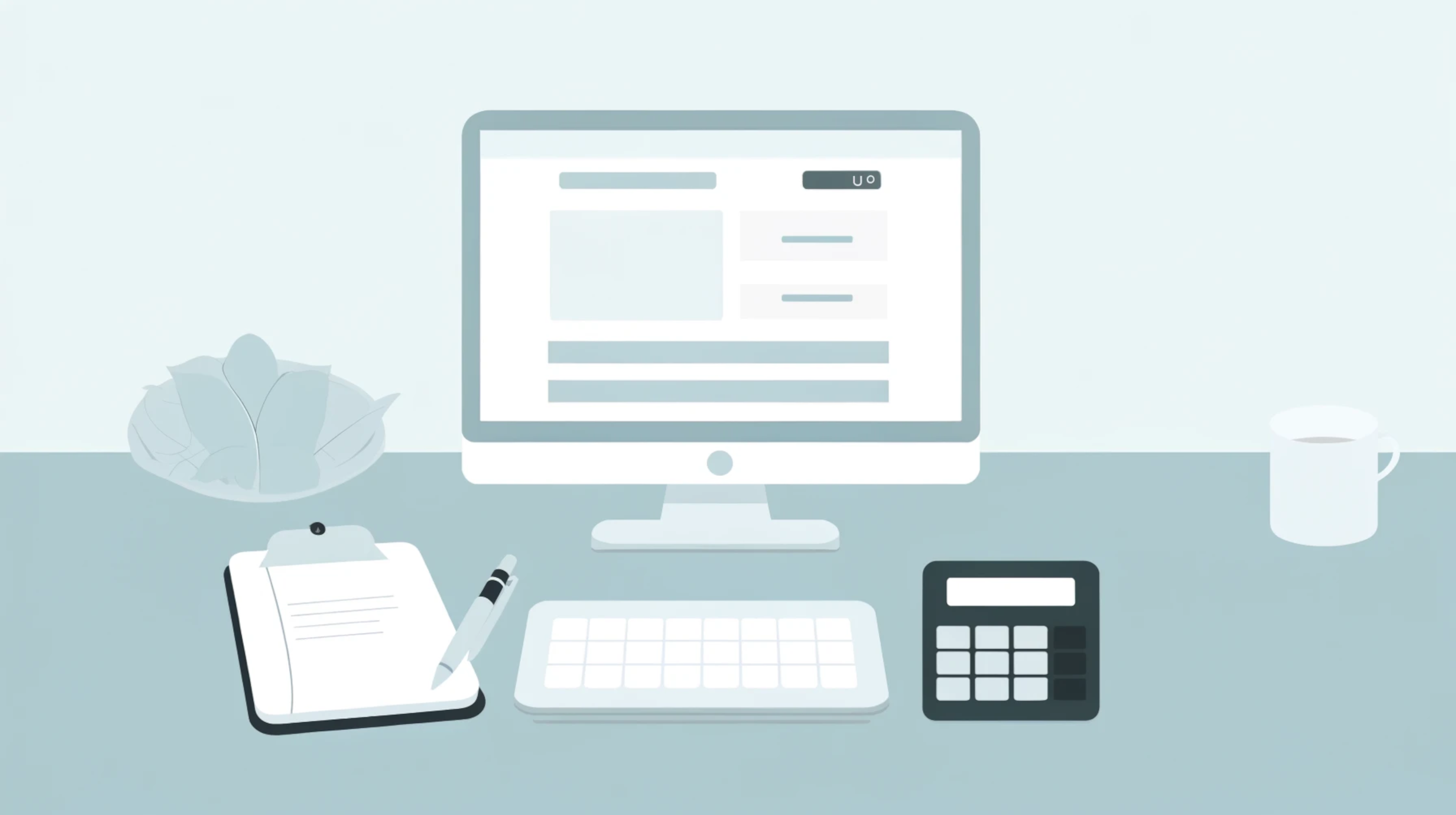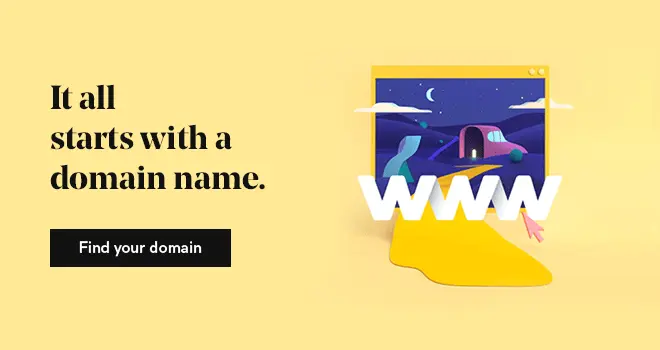Speculations over how much does a website cost never seem to end as companies carry in their prices of IT services. Today, IT service providers overwhelm business owners, freelancers, entrepreneurs, and even corporations with their price range, making it difficult to get a hold of a materialized price for businesses to take as their website cost. If you’re trying to calculate website building costs, many hidden costs can appear in addition to your initial cost calculations.
When it comes to building a website, you have a few different options. From hiring a web design agency to building it yourself (DIY), this article explores the cost of building a website in the MENA for different budgets.
Your website is the most important sales and marketing tool you have.
Why understanding website costs is essential
Understanding the costs associated with building and maintaining a website is crucial for any business venturing online. Knowing what expenses to expect can help you budget effectively, ensuring that you allocate enough resources to build a robust digital presence without overspending. Whether it’s for securing a memorable domain, choosing the right hosting plan, or investing in professional web design, each decision affects your overall cost and, ultimately, the performance of your site. An in-depth understanding allows you to balance affordability with the advanced features necessary to create a user-friendly, effective online store or simple website that truly represents your brand in the digital marketplace.
Related: How to start an online store in 2025 – full guide
Common misconceptions about website costs
Many business owners stepping into the digital world harbor misconceptions about website costs that can lead to either overspending or underspending. Here are some common myths debunked:
- All websites cost the same to build: The truth is that the cost of a website varies widely depending on its complexity, functionality, and the technology used. A simple blog with a few pages may only require minimal investment, whereas an advanced ecommerce website with custom designs and features can be significantly more expensive.
- Once built, there are no ongoing costs: Websites require regular updates and maintenance to ensure security, functionality, and relevance. Failing to invest in ongoing maintenance can lead to vulnerabilities and degraded performance over time.
- Free tools are always the best starting option: While free tools like free website builders or open-source platforms offer a cost-effective start, they might not always be the best long-term solution. They often lack specific features needed for scaling or optimizing your online business, such as advanced SEO tools or custom ecommerce capabilities.
Understanding these aspects is crucial as it helps set realistic expectations and budgets. By demystifying these common misconceptions, business owners can plan more effectively, ensuring they invest wisely in their digital presence to yield the best return on investment.
Key factors that influence website costs

When planning to launch a new website, understanding the key factors that influence the cost is crucial for budgeting and decision-making. From choosing between do-it-yourself (DIY) solutions and professional web design to considering the website's functionality and scale, each element plays a significant role in the total cost.
Choosing between DIY and professional website design
The decision to build your own website using a drag-and-drop builder or to hire a professional designer is significant. DIY website builders like GoDaddy's Website Builder are user-friendly, offering a variety of templates that help beginners get their site up and running quickly. This approach is cost-effective, often including basic functionalities needed for a simple website. On average, using a website builder can start as low as AED 29.99 per month, making it an attractive option for startups and small businesses focusing on cost-efficiency.
In contrast, hiring a professional for web design costs more but offers several advantages. A custom website design ensures that your online presence stands out with a unique look, potentially improving user experience and reinforcing brand identity. Professional web design costs can vary significantly based on the scope of the project, but they generally start upwards of $200 and can go much higher depending on the complexity and bespoke features required.
Impact of website functionality on cost
The functionality of a website significantly impacts its development cost. Basic informational sites with just a few pages and contact forms are on the lower end of the cost spectrum. However, adding advanced features like ecommerce capabilities, email marketing integrations, or custom contact forms can increase the price. For instance, integrating an ecommerce store requires a more robust hosting plan, enhanced security measures such as a free SSL certificate for the first year, and perhaps even a premium theme that supports WooCommerce for those looking to utilize WordPress.
Moreover, the type of website—whether it’s a landing page, full-scale digital marketing platform, or an online store—dictates the required technologies and skills, which in turn influences the cost. Each added functionality, from user registration and data storage to advanced SEO tools and social media integration, requires additional setup time and expertise, raising the overall cost.
The role of website complexity and scale
The complexity and scale of a website are also crucial factors that affect its development and maintenance costs. A simple website for a small local business with a few pages will be much less expensive than a large-scale enterprise site that requires custom web development, backend capabilities to handle large amounts of user data, and high-level security features.
As the website scales, so does the need for more sophisticated hosting services. While shared hosting might suffice for a small, low-traffic website, a high-traffic online store might require dedicated hosting services or advanced cloud hosting solutions, which could significantly increase the website hosting costs. The choice of hosting service impacts not only performance but also the capacity to handle visitor traffic and data, which is crucial for maintaining a good user experience.
Breakdown of website building costs
Understanding the various components that contribute to the total cost of building a website is crucial for businesses planning to establish or upgrade their online presence. This breakdown will guide you through the expenses involved in domain registration, web hosting, website design and development, and the essential features that enhance the functionality of your website.
Domain registration costs
Domain registration is the first step in establishing your business online. Costs can range from as low as $0.99 to over $50 annually depending on the domain's popularity, extension, and the domain registrar. Common extensions like .com or .org are generally more affordable, while specialized extensions such as .ai, .tech, or .store may come at a premium. Many registrars offer promotional pricing for the first year, but it's important to also consider the standard renewal rates. Bundling services with web hosting can often reduce these costs, providing an efficient way to manage both your domain and hosting under a single provider.
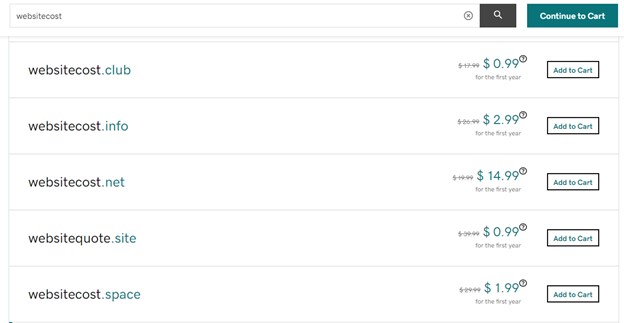
Related: What is a domain name? Everything you need to know about domain names.
How to choose a domain name
Choosing the right domain name is foundational for your online success. It impacts your branding, search engine optimization (SEO), and overall customer recall. Here are a few tips to help you pick the perfect domain name:
- Keep it Short and Memorable: Short names are easier to remember, type, and share. Aim for something catchy that sticks in your audience's mind.
- Use Keywords: Incorporate keywords that describe your business and the services you offer. For example, if you own a coffee shop, you might want to include "coffee" in your domain name or own a .coffee domain extension.
- Avoid Hyphens and Numbers: These can be confusing and are often misunderstood when spoken aloud. Stick to letters to avoid potential misdirection.
- Choose the Right Domain Extension: While .com is the most popular, consider other extensions like .net, .org, or even niche extensions like .meme, depending on the nature of your business.

Related: How to choose the right domain for your online store?
Average costs of different domain extensions
The cost of domain registration can vary based on the chosen extension:
- .com: $10-$15 per year
- .net: $10-$20 per year
- .info: $2-$20 per year
- .shop: $30-$50 per year
- Specialized extensions like .tech, .io, or .ai could be more costly, often ranging from $40 to $60 per year due to their specific appeal and lower availability.

Related: .com vs .net: what is the difference & which one to use?
Web hosting options and their costs
Selecting the right web hosting option is crucial for the performance and reliability of your business website. Here's a deeper dive into how different hosting options can impact your site's functionality and overall cost:
- Performance and Speed: Dedicated hosting provides superior performance and speed compared to shared hosting. This is crucial for websites with high traffic volumes or complex operations, as slow loading times can negatively affect user experience and SEO.
- Scalability and Flexibility: Cloud hosting stands out for its scalability and flexibility. Businesses experiencing fluctuating traffic, or those planning to scale quickly, will find cloud hosting particularly beneficial because it allows for easy resource adjustments without downtime or performance hitches.
- Security and Control: While shared hosting is cost-effective, it generally offers less control and security. Dedicated servers provide enhanced security features and greater control over your hosting environment, making them ideal for businesses handling sensitive information or requiring specific server configurations.
- Cost Considerations: Although shared hosting is the least expensive option, it might not always offer the best value for growing businesses or those with specific technical requirements. Investing in a dedicated or cloud hosting plan can result in higher upfront costs but offer significant returns through improved performance and fewer site issues.
By understanding these nuanced benefits and trade-offs, businesses can better align their hosting choices with their strategic goals and budget constraints, ensuring they invest in a hosting plan that supports their long-term success.
Shared vs. dedicated vs. cloud hosting
The type of web hosting you choose can have a significant impact on the performance and reliability of your website:
- Shared Hosting: The most cost-effective option, where multiple websites share the same server resources. Ideal for small businesses and startups with lower visitor traffic.
- Dedicated Hosting: An expensive option that provides a server solely for your website. It’s perfect for large businesses with high traffic levels and specific server configuration needs.
- Cloud Hosting: Offers scalability and reliability by distributing your website’s load across multiple virtual servers. Costs can vary widely but are generally mid-range, suitable for businesses that expect traffic fluctuations.
Development and website design costs
When considering development and website design costs, it's important to evaluate beyond basic costs and understand the value each option offers.
- Advanced Customization: Beyond basic templates, professional web design offers advanced customization options that can align perfectly with your branding and functionality needs. This includes custom interactive elements, bespoke integrations, and unique layouts that enhance user engagement and accessibility.
- Long-term Scalability: Investing in professional design might seem costly upfront but can save money in the long run. A well-designed website requires fewer updates and can scale as your business grows, without the need for a complete redesign.
- Efficiency and Expertise: Professional designers bring a level of efficiency and expertise that can significantly speed up the launch of your website. They are equipped to handle unexpected challenges and can ensure that your site is optimized for both desktop and mobile devices from the start.
Cost of hiring a web designer vs. using a website builder
- Web Designer: Hiring a professional can cost anywhere from $500 to over $5,000 depending on the complexity of the design and the reputation of the designer. Custom websites are typically unique to your brand and can offer a more sophisticated look and functionality tailored to your needs.
- Website Builder: Platforms like GoDaddy’s Website Builder can start as low as $11.99 per month and offer a range of templates that make design accessible to beginners.
Pricing models: fixed rate vs. hourly rates
- Fixed Rate: More predictable as you agree on a set price for the entire project. Ideal for projects with well-defined scopes.
- Hourly Rates: Can vary depending on the designer’s expertise and the project’s demands. Rates typically range from $50 to $150 per hour.
Essential website features and their costs
Expanding on the basic functionalities, it's crucial to consider the long-term benefits and potential costs associated with advanced website features:
- Advanced CMS Capabilities: While basic CMS functionalities cover everyday needs, advanced options such as automated backups, enhanced security features, and custom content types can cater to more complex requirements, making your website robust and secure.
- Comprehensive E-commerce Solutions: For e-commerce websites, investing in comprehensive solutions that include inventory management, advanced payment gateways, and customer relationship management tools can enhance the shopping experience and improve operational efficiency.
- Enhanced SSL Certificates: Beyond basic encryption, investing in enhanced SSL certificates can provide additional security features like extended validation. This not only helps protect sensitive customer information but also boosts customer trust, which is crucial for e-commerce sites.
By providing a deeper look into these aspects, the content will seamlessly extend the initial overview and help businesses make informed decisions about their website investments.
Content management systems (CMS)
A CMS like WordPress allows you to manage and update your website content without needing to understand web development, making it an invaluable tool for business owners. While WordPress itself is free, premium themes and plugins can add to the cost, typically ranging from $30 to $100 each.
E-commerce functionality
Integrating e-commerce functionality can significantly vary in cost, depending on the complexity of the online store. Using platforms like WooCommerce, which integrates with WordPress, can start at a minimal cost for the basic plugin but can increase with additional extensions and customizations.
SSL certificates
An SSL certificate secures the data exchanged on your site and is crucial for all websites, especially e-commerce stores. Prices for SSL certificates can range from free (basic protection) to over $200 per year for advanced security features.
Each component of website building plays a critical role in the digital success of your business. By carefully considering each aspect, from the initial domain registration to the ongoing web hosting and essential website features, you can effectively budget for a website that meets your business needs while aligning with your financial resources.
Related: What is SSL Certificate: Definition & Full Guide
Costs of building a WordPress website

Building a WordPress website can range from being relatively low-cost if you leverage the platform's extensive range of free resources, to quite expensive if you opt for custom themes, premium plugins, and professional design services. A basic WordPress site could start at little to no cost beyond hosting, while more sophisticated sites with advanced features might run thousands of dollars. The versatility of WordPress allows for scaling in complexity and cost, catering to both beginners and large businesses seeking powerful digital solutions.
Related; How to build a WordPress website for the first time?
WordPress hosting costs
WordPress hosting costs can vary widely depending on the type of hosting service you choose. Shared hosting, where your site resides on a server with others, can start as low as $2.95 per month. For more robust needs, VPS or dedicated hosting provides greater performance and security, costing anywhere from $20 to over $100 per month. Managed WordPress hosting from GoDaddy is another popular option, providing optimized performance, security, free domain, and support specifically for WordPress sites, typically starting around $15 per month and going up to $60 per month for higher-tier plans.
Related: The road to “worry-free” WordPress hosting: 5 key factors for choosing a WordPress hosting provider
Themes and plugins costs
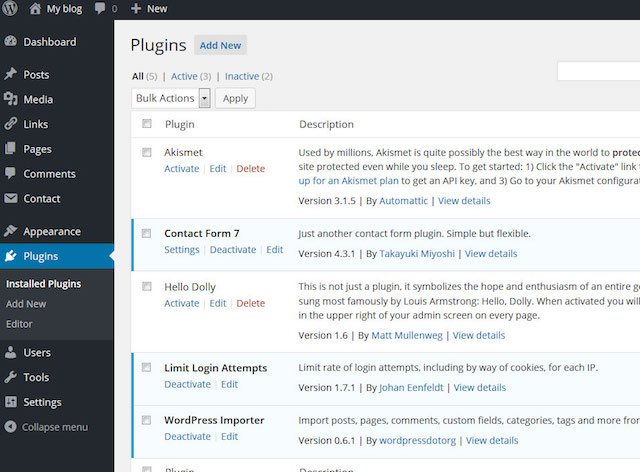
The cost of WordPress themes and plugins can add significantly to the overall expense of website building. While there are thousands of free options available, premium themes and plugins offer more sophisticated features and dedicated support. Themes can range from $30 to $100 for one-time purchases, while plugins can vary based on functionality, from a few dollars to several hundred for advanced features like e-commerce integrations or high-end security plugin solutions.
Free vs. premium options
| Feature | Free Options | Premium Options |
| Support | Limited or community-based | Extensive with professional support |
| Updates | Infrequent | Regular updates and enhancements |
| Functionality | Basic features | Advanced features and customizations |
| Security | Basic security features | Enhanced security options |
Design and customization costs
Designing and customizing a WordPress site can be as cost-effective or as pricey as you choose. Using pre-made templates and a DIY approach, you might only incur minimal costs. However, for unique branding and specific functional requirements, hiring a professional designer can provide a tailored solution, which can cost anywhere from a few hundred to several thousand dollars, depending on the complexity of the design.
DIY with WordPress vs. professional WordPress design
| Aspect | DIY with WordPress | Professional WordPress Design |
| Cost | Minimal to moderate (mostly free to low-cost themes) | Significantly higher (custom design fees) |
| Expertise Required | Some understanding of WordPress | No personal expertise needed |
| Time Investment | Significant personal time and effort required | Minimal personal time required |
| Customization | Limited by skill and available tools | Fully customized to business needs |
Ongoing WordPress management and maintenance costs
Maintaining a WordPress website involves ongoing costs, which can range from moderate to high based on the website's complexity and traffic. Basic costs include regular hosting fees, domain renewal, and backups, which might cost around $100 to $200 annually. For higher-traffic sites requiring frequent updates, enhanced security, and technical support, costs can climb to $500 or more per year. Regular updates to themes and plugins, as well as occasional redesigns or feature additions, also factor into ongoing maintenance expenses, ensuring your site remains secure and functional.
Ongoing website maintenance costs
Ongoing website costs are crucial for maintaining the health and effectiveness of your online presence. These expenses typically encompass hosting services, domain renewals, maintenance, security updates, and marketing activities. Regular investment in these areas ensures that your website remains functional, secure, and competitive. Effective budgeting for these ongoing costs is essential for businesses to avoid unexpected expenditures and ensure the website continuously supports their business goals, providing a seamless user experience and sustaining optimal performance in search engine rankings.
Maintenance and update costs
Maintaining and updating a website is key to ensuring it remains current, fast, and relevant to your audience. Regular maintenance includes updating content, ensuring links are working, and refreshing the pages with new information and features. The costs for these updates can vary, but typically include fees for content management and the labor associated with implementing updates. Businesses might spend anywhere from $100 to several thousand dollars annually on maintenance, depending on the size of the site and the frequency of updates required to support changing business strategies or technology updates.
Marketing and SEO costs
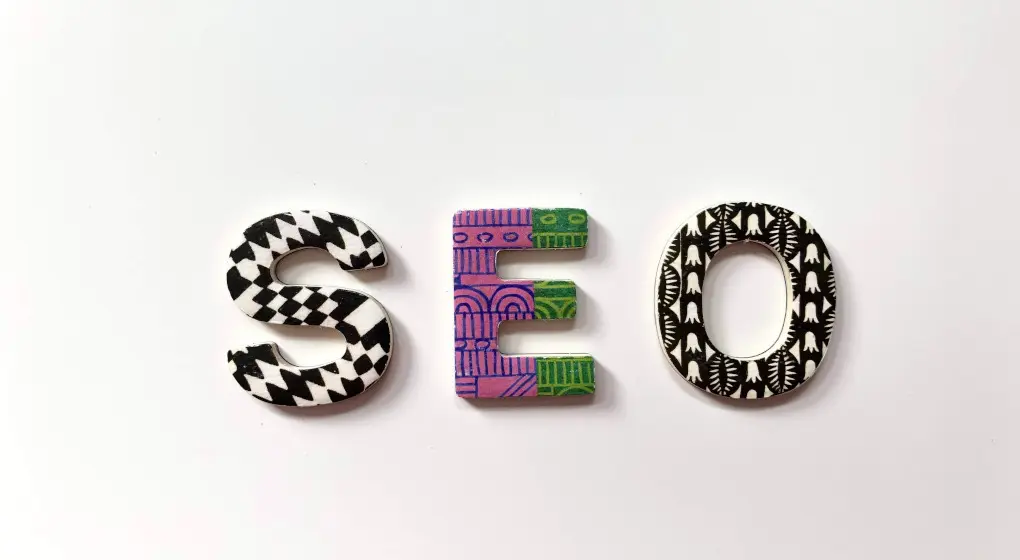
Marketing and search engine optimization (SEO) are vital for driving traffic and improving the visibility of your website. SEO involves optimizing your website's structure and content to rank higher in search engine results, which can significantly increase organic traffic. Marketing costs may include expenses for digital marketing strategies such as pay-per-click advertising, social media marketing, email marketing, and content creation. Depending on the scale and objectives of your campaigns, these costs can range from a few hundred to several thousand dollars per month.
Related: SEO for websites: Should you start before or after the website launch?
Security and backup costs

Security and regular backups are critical to protect your website from data loss and cyber threats. Investing in robust security measures such as SSL certificates, secure hosting, and malware scanning can prevent significant financial and reputational damage caused by security breaches. Backup costs involve storing copies of your website data in secure locations to ensure quick recovery in case of data corruption or loss. Typically, small to medium-sized businesses might spend between $50 to $300 per year on security and backup solutions, depending on the complexity and scale of their website operations.
SSL Certificates: Show visitors you're trustworthy and authentic.
Cost-saving tips for website building
Building a website doesn't have to drain your resources. Smart planning and strategic decision-making can significantly reduce costs without compromising quality.
- Consider using open-source platforms like WordPress, which offers a range of free themes and plugins.
- Opt for shared hosting plans initially, which are less expensive than dedicated servers.
- Utilize drag-and-drop website builders to cut down on the need for expensive professional web design services.
Implementing these cost-saving measures ensures that you maintain control over your website's budget while still creating a functional and aesthetically pleasing online presence.
Choosing cost-effective solutions
Selecting cost-effective solutions for website development involves understanding where to find value without sacrificing functionality. Begin by choosing a hosting plan that balances cost with performance; shared hosting can be a great start for small to medium sites. Utilize free SSL certificates offered by many hosting services like GoDaddy to reduce costs while securing user data. For web design, explore free templates offered by platforms like GoDaddy or opt for a premium theme that requires minimal customization. Remember, leveraging tools like email marketing and SEO apps can drive traffic effectively, often at a lower cost than traditional advertising methods.
When to invest more for long-term benefits
Investing more in certain aspects of your website can yield significant long-term benefits. Opting for a professional web design ensures a unique and user-friendly interface that stands out from competitors. Investing in advanced SEO services and digital marketing strategies can exponentially increase your reach and customer engagement, translating into higher revenue. Furthermore, a robust ecommerce platform or a custom CMS tailored to your specific needs can enhance user experience and operational efficiency. Consider these investments if they align with your business goals and projected growth, as they can provide substantial returns over time.
Conclusion and checklist for budgeting Your website
Building a website in 2025 requires careful consideration and strategic planning to balance cost-efficiency with functionality. As we've explored, the cost of creating and maintaining a website can vary significantly based on several factors, including the choice between DIY and professional design, the complexity of the website, and the selection of essential features like e-commerce capabilities and advanced security measures.
Final thoughts on managing website costs
Effectively managing your website costs starts with a clear understanding of what each component entails and how it aligns with your business objectives. Whether you're a startup on a tight budget or a growing enterprise needing a robust digital platform, the key lies in prioritizing your needs. Assessing ongoing costs such as maintenance, updates, and marketing is crucial. These not only ensure your website remains competitive and secure but also help in achieving sustained growth and a strong online presence. By foreseeing these expenses, businesses can allocate resources more efficiently, avoiding unexpected costs and maximizing ROI.
Checklist: what to consider before building a website
Before diving into website development, consider this checklist to guide your planning process:
- Define Your Goals: What do you want your website to achieve? Understanding this will guide your decisions on the type of website you need.
- Budget Realistically: Set a clear budget that includes initial design and development costs as well as ongoing expenses like hosting, website maintenance, and marketing.
- Choose the Right Platform: Decide whether a DIY website builder, WordPress, or custom development solution best suits your needs based on your technical skills and the specific functionalities required.
- Consider Scalability: Ensure that the platform and the hosting provider you choose can grow with your business, accommodating increases in traffic and content without requiring a complete overhaul.
- Focus on User Experience: A user-friendly design is crucial for engaging and retaining visitors. Consider professional design and development to ensure a high-quality user interface and user experience.
- Plan for SEO and Marketing: Develop a strategy for driving traffic to your new site through search engine optimization and digital marketing initiatives from the start.
By adhering to these guidelines, you can create a website that not only meets your current needs but is also poised for future growth. The journey of building and maintaining a website is continuous, with strategic investments in design, functionality, and marketing driving success in the digital world.
FAQs about website costs
Answers to your questions:
What is the normal cost for a website?
The normal cost for a website varies widely, ranging from $100 for a basic website using a DIY platform like GoDaddy’s website builder to over $10,000 for a custom-designed professional site with advanced functionalities.
How much does it cost to build a normal website?
Building a standard website typically costs between $200 for simple, template-based sites using website builders, to $5,000 or more for custom designs tailored to specific business needs.
How much does a website cost in Dubai?
In Dubai, website costs can start from around AED 1,000 for basic sites and can exceed AED 50,000 for highly customized, feature-rich websites aimed at larger enterprises.
How much does it cost to maintain a website for a small business?
Maintaining a website for a small business can cost anywhere from $50 to $500 per month, depending on factors like hosting, updates, security measures, and marketing activities.
Editor's Note: This article was updated on December 7, 2024.
